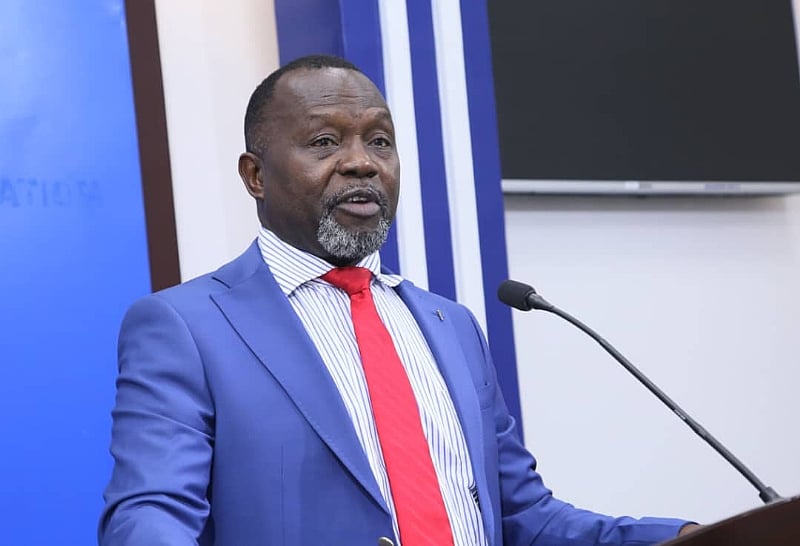Dr. Dominic Ayine, Ghana’s Attorney General and Minister for Justice, delivered a poignant address at the Ghana Bar Association’s (GBA) Annual General Conference, urging the association to reaffirm its commitment to upholding the rule of law and constitutional principles. He expressed concern over what he perceived as the GBA’s inconsistent stance on petitions for the removal of high-ranking officials under Article 146 of the Constitution, specifically highlighting the case of former Chief Justice Gertrude Torkornoo. Dr. Ayine argued that the GBA’s selective silence in previous instances, coupled with its vocal criticism of Justice Torkornoo’s removal, raised concerns about potential partisan bias, ultimately undermining the association’s credibility as an impartial defender of the Constitution.
Dr. Ayine’s address underscored a pattern of selective engagement by the GBA in matters concerning Article 146 petitions. He cited the cases of former CHRAJ boss Lauretta Lamptey in 2015 and former EC chairperson Charlotte Osei and her deputies in 2017, where the GBA remained silent despite the initiation of removal procedures. In contrast, the GBA actively voiced concerns about the due process followed in the removal of Justice Torkornoo, even though all three cases involved similar constitutional procedures. This discrepancy, according to Dr. Ayine, suggested a potential shift towards partisan alignment, raising questions about the GBA’s objectivity and commitment to upholding constitutional principles irrespective of the individuals involved.
The Attorney General emphasized the crucial role of independent constitutional bodies in a democratic society and expressed concern that the GBA’s selective intervention risked politicizing the process of removing officials from these bodies. He noted that all three officials in question – Lamptey, Osei, and Torkornoo – were women of high standing and members of the legal profession, yet the GBA’s response differed significantly. This disparity, in his view, highlighted the potential for the GBA’s actions to be perceived as biased and driven by political considerations rather than a genuine commitment to due process and the rule of law.
Dr. Ayine argued that the GBA’s actions inadvertently amplified the voice of the opposition in the case of Justice Torkornoo, thereby escalating the politicization of a process intended to be governed by constitutional principles. He maintained that all three Article 146 committees had adhered to the prescribed procedures, yet the GBA chose to publicly intervene only in the case involving Justice Torkornoo. This selective engagement, according to Dr. Ayine, risked undermining public trust in both the GBA and the process of removing officials from constitutional bodies, creating an impression of inconsistency and potentially eroding the integrity of the legal profession.
The Attorney General’s address served as a call for introspection within the legal community, particularly among lawyers involved in politics. He emphasized that lawyers have a primary responsibility to uphold the Constitution and serve the interests of the Ghanaian people, irrespective of their political affiliations. He urged the GBA to act as a voice of reason and moderation, championing constitutionalism and the rule of law above partisan interests. He stressed that the GBA’s interventions should be guided by principles of fairness, due process, and the independence of the judiciary, rather than by political considerations.
Dr. Ayine’s remarks came at a time of increased public debate regarding the removal of Justice Torkornoo, with significant criticism emanating from civil society organizations and members of the legal community. His address underscored the importance of maintaining the integrity and impartiality of institutions responsible for upholding the rule of law, emphasizing that selective engagement based on political considerations can erode public trust and undermine the very principles these institutions are meant to protect. He called upon the GBA to reflect on its role and recommit itself to its core mandate of defending the Constitution and ensuring due process for all, irrespective of political affiliations or other extraneous factors.














